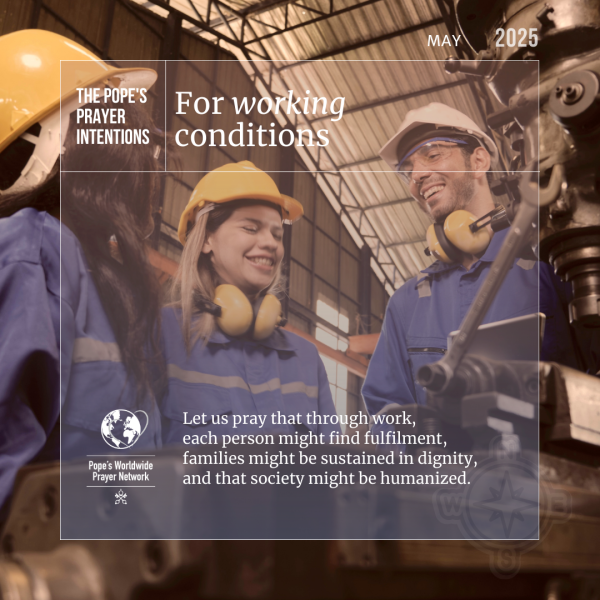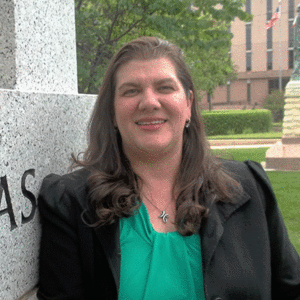Texas Catholic Voice May 12, 2025
In this issue of the Texas Catholic Voice:
- A Beaumont welcome to our new pope!
- Human remains legislation
- And more!
A Message from Jennifer Allmon, Executive Director
Habemus Papam! What a joyful time for the Church and a proud moment for America, especially the city of Chicago. Pope Leo XIV is the first Augustinian pope, the first pope from North America, the first Chicagoan! The Lord is full of surprises. Bishop Toups’ reaction sums it up.
Human remains legislation
One of the seven corporal works of mercy is burial of the dead. As Christians we believe the disposition of human remains must reflect the inherent dignity of beings made in the image and likeness of God. The Catechism of the Catholic Church states, “The bodies of the dead must be treated with respect and charity, in faith and hope of the Resurrection” (CCC, 2300). Cremation is permitted by the Church provided “it does not demonstrate a denial of faith in the resurrection of the body” (CCC, 2301). After cremation, the remains should be interred and not scattered or kept in the home.
Two alternatives to traditional burial and cremation are alkaline hydrolysis and human composting, neither of which treat human remains with respect and dignity. For several sessions, we have fought efforts to legalize alkaline hydrolysis, a process that dissolves most of the body into liquid which is then treated as wastewater. This session, the bill (SB 1327) did not get a hearing. HB 2200 which would legalize human composting, a process that involves turning the human body into soil, was heard on the House floor today but thankfully did not pass to third reading by a vote of 87 nays to 43 ayes. Neither of these methods are acceptable because they lack the dignity owed to human remains; one flushes most of the body down a drain and the other treats the body as a commodity.
We do support SB 2721/HB 5278 authored by Sen. Tan Parker and Rep. Keith Bell which addresses gaps in Texas statute for the protection of the dignity of the deceased. Legal organ transplantation is heavily regulated but the non-transplant market for body parts and cadavers lacks sufficient oversight. For example, Texas law does not yet have mechanisms for ensuring verifiable consent for body donation. The current law also cannot provide a guarantee that the families of the deceased receive timely notifications and opportunities to claim their loved ones’ remains.
SB 2721 ensures no human body is transferred for research without a robust search for relatives or documented informed consent for donation from the deceased. Government officers and willed body programs would be compelled to ensure that any donation is clearly authorized. These measures address the disproportionate harm to indigent, unhoused and other at-risk individuals by preventing their remains from being used for research and then treated as biohazardous waste.
Although not everyone shares our Christian belief in the resurrection of the body, the state does have an interest in the respectful disposition of human remains. Our respect for the dignity of the dead is an extension of our respect for the dignity of the living. Current regulations regarding human remains are not solely intended to protect the public health but are also a recognition that the dignified treatment of the dead is a civilized practice. We urge our lawmakers to reject crass and demeaning methods of body disposition and prevent abuses in the use of human remains for research.
Bills in Committee, May 12 – 16
House Public Health Committee, Monday, 8 a.m.
SB 2721 by Senator Tan Parker requires the adoption of minimum standards for human body acquisition services. It also requires a record of each body and anatomical part donated to be tagged with a unique identifier and the location until final disposition and prohibits unclaimed bodies from being donated for scientific use. The TCCB supports this bill to ensure the dignified treatment and disposition of human remains.
House State Affairs, Monday, 8 a.m.
SB 2601 by Senator Cesar Blanco enhances the definition of border crime to include smuggling. It establishes a compensation plan for landowners and lessees of agricultural land for real property damage caused by trespassers involved in border crimes or in response to law enforcement actions against such trespassers. The TCCB supports this bill to provide relief to communities along the border who have experienced property damage.
Senate Business and Commerce, Tuesday, 8 a.m.
HB 4238 by Rep. Morgan Meyer establishes protection mechanisms for victims of identity theft. The TCCB supports this bill to provide protections for survivors of domestic violence and human trafficking who have debt incurred in their name by an abuser and other victims of identity theft.
Senate Health and Human Services, Tuesday, 1:30 p.m.
HB 754 by Rep. Senfronia Thompson requires human trafficking training for medical assistants to identify, assist and report victims of human trafficking. The TCCB supports this bill to combat human trafficking.
HB 2789 by Rep. James Frank exempts "single source continuum contractors" from needing a child-placing agency license to fulfill their responsibilities. The TCCB supports this bill to balance operational efficiency with the safety and welfare of children within the Texas child-care system.
House Trade, Workforce and Economic Development, Wednesday, 8 a.m.
SB 1860 by Senator Bryan Hughes amends the SCOPE ACT by adding private schools to the list of entities for which the SCOPE Act does not apply. The TCCB supports this bill as private schools do not have the capacity to meet the requirements and the omission of a private school's exemption from the original bill was unintended.
The pope's prayer intention for May: For working conditions
Let us pray that through work, each person might find fulfilment, families might be sustained in dignity, and that society might be humanized.
For more information, visit the Pope's Video website.

Upcoming executions
- Matthew Johnson – May 20, 2025
We pray for the victims of violence and their loved ones, for those on death row and for an end to the death penalty.


